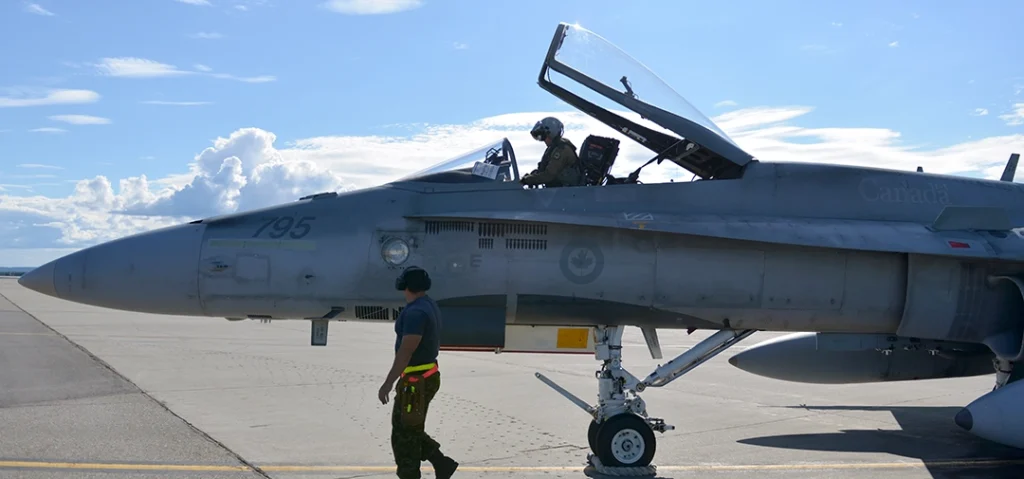The Royal Canadian Air Force is transitioning its fleet from CF-18s (pictured) to F-35s, but the service faces other challenges, experts agree. U.S. AIR FORCE
THE WATCH STAFF
A panel of military experts discussed the challenges confronting a key U.S. ally’s air force in a recent online discussion.
The hourlong webinar, presented by the Royal United Services Institute (RUSI), featured three academics who outlined the future of the Royal Canadian Air Force (RCAF) and its roles in the North American Aerospace Defense Command (NORAD) and NATO.
Although the RCAF is transitioning its war plane inventory from aging CF-18s to F-35s, that change is only a fraction of the overhaul transformation needed, the panelists said.
The RCAF’s value to NATO and NORAD is its pilots’ experience in flying in Arctic conditions where GPS, radar and other aviation technology is often spotty, said Justin Bronk, a RUSI senior research fellow who specializes in air power and technology.
But an air fleet with 40-year-old warplanes and RCAF’s struggles with retention in recent years have made it difficult for Canada to fulfill both its NORAD and NATO missions, he said.
Characterizing the RCAF’s mission capability as a “jack of all trades, master of none,” Bronk suggested better integration between Canada’s responsibilities in NATO and NORAD.
“A constructive way to move forward is to merge NATO/NORAD responsibilities,” Bronk said.
NORAD’s planned radar upgrades to Over-the-Horizon radar is a game changer, the panelists agreed.
For the first time, NORAD is receiving plenty of political and military attention in both Canada and the U.S., said Dr. Andrea Charron of the University of Manitoba’s Centre for Defence and Security Studies and the North American Arctic Defence and Security Network (NAADSN).
“This is unprecedented,” she said.
Although the planned radar upgrades are still in the early stages of development, Canada needs to embrace them, said P. Whitney Lackenbauer, NAADSN’s network lead, including “getting beyond some of our anxieties about sovereignty.”
The switch to F-35s won’t solve all the RCAF’s problems, Bronk said, but much can be done to retain pilots, mechanics and support staff to maintain force readiness.
Canada’s renewed focus on NORAD will be crucial for the future of the RCAF, Charron said.
“The advantage that Canada has … it’s the all-domain awareness part, providing that picture that is essential for North America to be protected. And that same picture will be vital for NATO as well,” she said.

